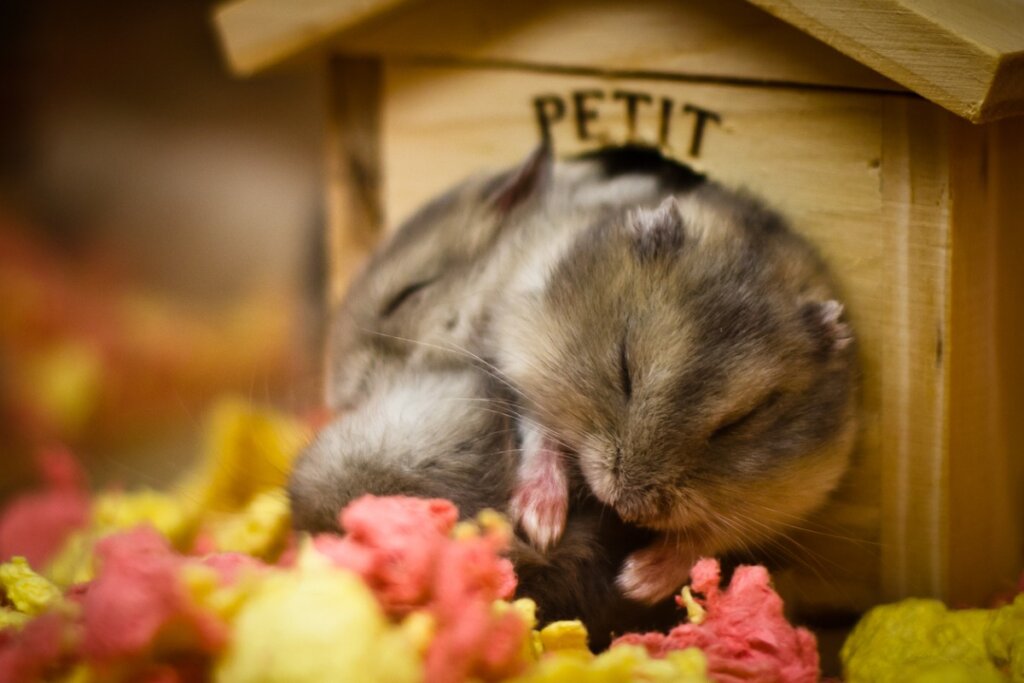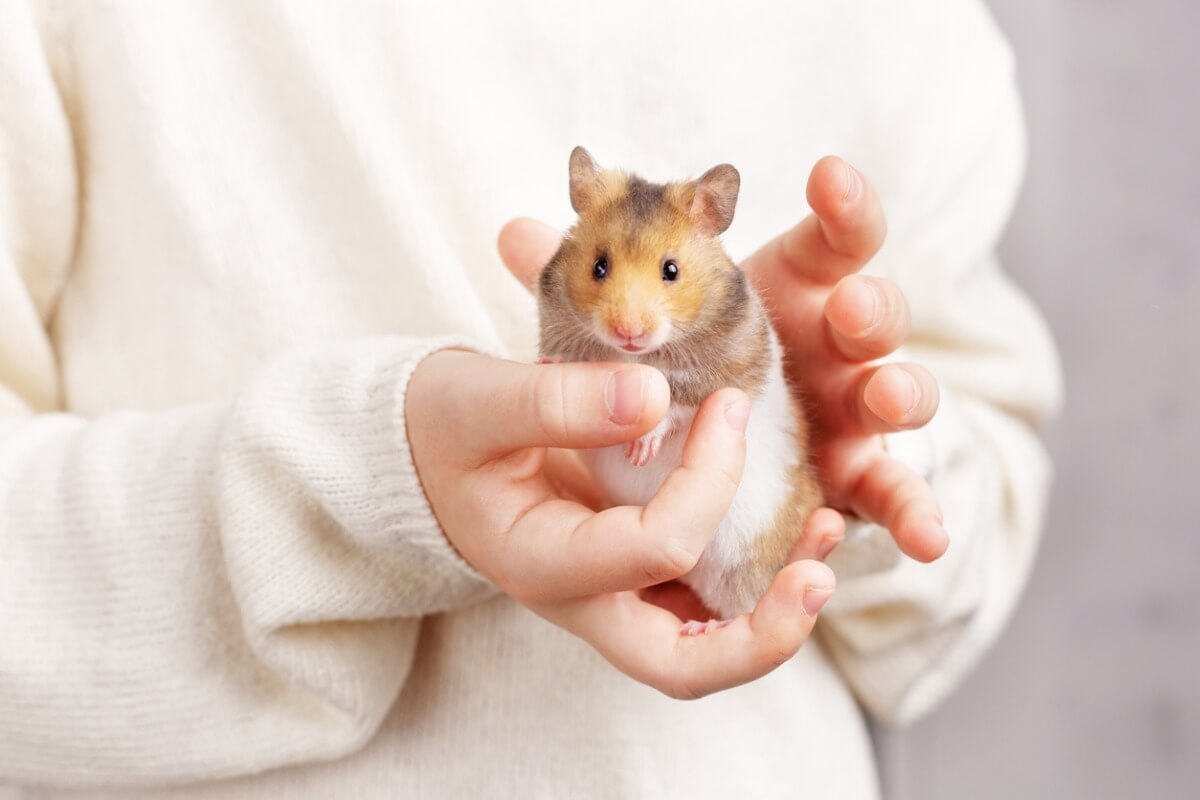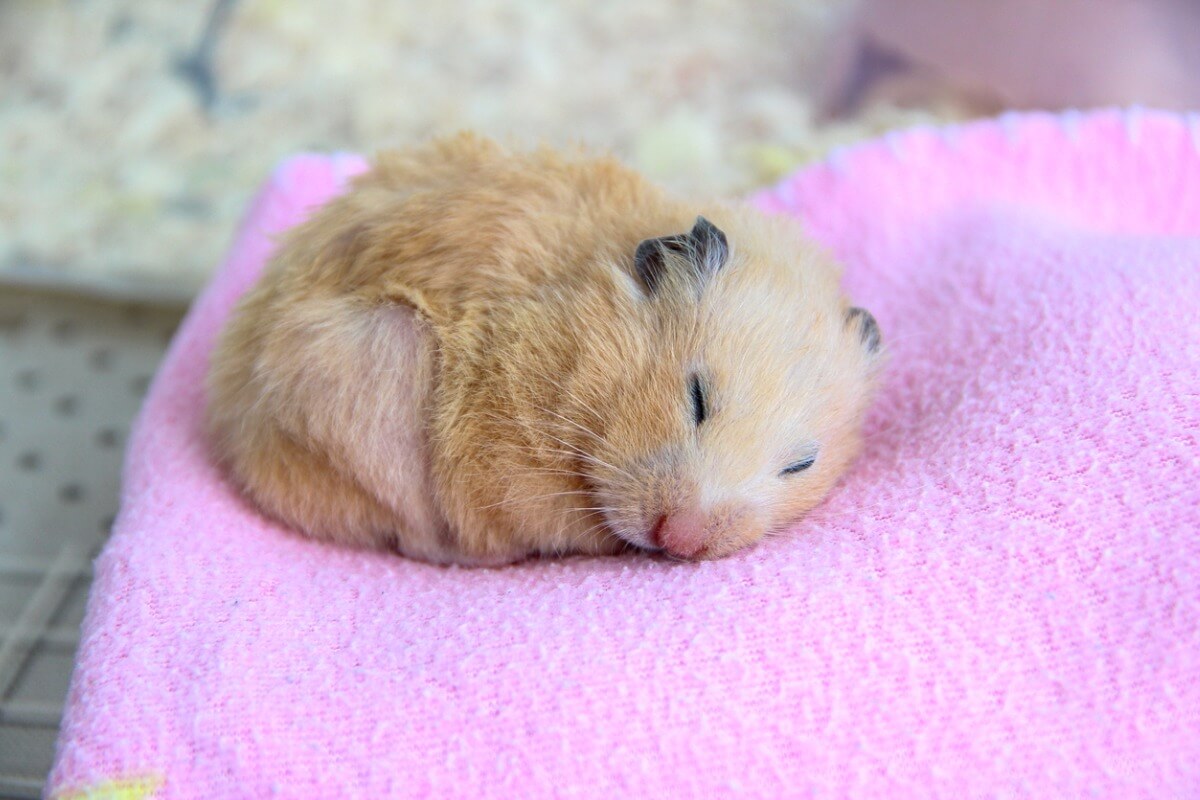My Hamster Sleeps So Much! Why?

Hamsters can be defined as “short fuse” animals. In other words, they’re extremely active during specific parts of the day, have a very fast metabolism, and, unfortunately, die very quickly. Longevity depends on the species, but is estimated to be 2-3 years at most. These mammals are born fast, grow fast and die quickly. In this article, we’ll be looking especially at why a hamster sleeps so much, and if there could be a problem.
Although the life span of a pet rodent is short, the owner must be alert to any behavioral imbalances in order to detect health problems. The fact that an animal has a short life doesn’t mean that we shouldn’t try to help it live as long as possible. Here we’ll tell you why a hamster sleeps a lot and what pathologies this behavior may indicate. Don’t miss it!
Hamster behavior
Hamsters are rodent mammals (order Rodentia) belonging to the subfamily Cricetinae. This taxon contains 19 species, classified in 7 genera, and many of them are known for their fame as pets. The Russian hamster (Phodopus sungorus), Syrian hamster (Mesocricetus auratus), and Chinese hamster (Cricetulus barabensis) are some of the most famous.
Hamsters differ from common mice in several traits. They’re flatter and chubbier than their Mus relatives, have fur-covered feet, carry a pompom-shaped tail (which isn’t at all long), and have very large cheeks where they store their food.
Rodents are prey in their natural environment, so they require keen senses and great skill when it comes to hiding, in order to avoid ending up being a tasty meal for an owl, fox, or other predators. For this reason, they spend most of the day hidden in their burrows and only come out when they feel there’s no danger.
Hamsters are nocturnal animals that rest during the day and become active at night.

Why does a hamster sleep a lot or more than usual?
As indicated by professional websites, hamsters naturally sleep between 6 and 8 hours a day, although other sources argue that this period may be rather longer than this (12-14 hours). In any case, it should be noted that they have a polyphasic sleep pattern and wake up several times between naps.
Humans spend 25% of their rest time in the REM (rapid eye movement) phase, in which there’s a clear loss of muscle tone and rapid eye movements occur. This is also the time when we dream vividly. Apparently, rodents (and hamsters in particular) spend a similar amount of time in this phase as we do.
Although they wake up several times during the day and can be seen leaving the cage, hamsters are nocturnal in captivity. This means that they only show their peak activity during the night. While it’s normal for your rodent to spend most of its time asleep in the morning, it should become active at sunset. Here’s why it doesn’t if this is the case.
1. It’s trying to hibernate
If a hamster sleeps a lot and doesn’t wake up during the night, it may be entering a state of hibernation, a stage of drastically reducing its metabolism to withstand winter temperatures. Although some species do this naturally in the wild, it’s never recommended to allow your hamster to hibernate in captivity.
These rodents attempt to hibernate when the home temperature is much lower than 18°C (64°F). Ideally, hamsters should be brought out of hibernation by exposing them to a gradual rise in temperature until it reaches 20-23°C (68 – 73° F). If they still don’t start to show signs of hibernation, it’s best to keep them in hibernation. If it still doesn’t start to become more active at night after a few days, go immediately to the vet.
2. It’s stressed
As we’ve said previously, these rodents are prey animals in the natural environment. By instinct and genetics, they tend to get stressed and hide constantly if any element in the environment generates stress. The threat could be a cat in the home, a loud noise, or your own presence.
If you have a cat at home, don’t allow it to enter the room where the cage is, to avoid any unnecessary stress. You can also change the installation to a place where there’s no direct light and where there are no sources of noise nearby. Gradually, the animal will come out of its burrow or plastic house again if it isn’t stressed.
Don’t try to take your hamster out of its burrow while it’s resting or hiding. This will only cause more stress.
3. It isn’t well
Small rodents have a very fast metabolism and usually wake up around 6 or 7 in the evening, reaching a peak of activity in the early morning. If your hamster sleeps a lot and doesn’t get up in the evening when it usually does, it’s most likely ill.
Unfortunately, many diseases can affect this small mammal. Wet tail (a diarrhoeal condition caused by the intestinal bacterium Lawsonia intracellularis) is one of the most common and lethal in hamsters. Recovery is possible within 24 hours after the onset of symptoms, but if you don’t get to see a vet within that time period, then the chances of survival are virtually zero.
Many other conditions affect hamsters, including obesity, conjunctivitis, cancer, lymphomas, respiratory infections, and abscesses, among others. Some of these conditions are easily treated, although in others euthanasia is the only option. Keep in mind that operating on a small rodent is an almost impossible task.
4. Change of routine
If you work at home or too much light enters the cage, the hamster may not be able to rest during the day and this may interfere with its waking time in the evening. It is always advisable to move your hamster to an undisturbed area so that it can maintain its natural rhythm.

Should I wake up my hamster?
If your hamster sleeps too much, the first thing you might think is that you should wake it up. Nothing could be further from the truth; this will only make it even more stressed and it won’t want to leave its burrow under any circumstances. In addition, if it’s sick, then excessive handling will make its condition worse.
If none of the above works, take the rodent (including the cage) to the vet and let the professional handle it. It may just be a scare, but, unfortunately, the lack of nocturnal activity is almost always a very bad sign in these animals.
All cited sources were thoroughly reviewed by our team to ensure their quality, reliability, currency, and validity. The bibliography of this article was considered reliable and of academic or scientific accuracy.
- When And How Hamsters Sleep – Your Furball’s Sleepy Time, First Hamster. Recogido a 30 de noviembre en https://firsthamster.com/when-and-how-hamsters-sleep/
- Simasko, S. M., & Mukherjee, S. (2009). Novel analysis of sleep patterns in rats separates periods of vigilance cycling from long-duration wake events. Behavioural brain research, 196(2), 228-236.
